“Accept Discomfort, and Make Change”: 7 Lessons from Catalyst Honours 2021 (Blog Post)
At Catalyst Honours 2021, top global leaders shared how they’re promoting equity and inclusion for women in the future of work.
Attendees of Catalyst Honours 2021 described feeling “inspired,” “invigorated,” “educated,” and “phenomenal” following the conference on October 27-28, 2021. This was my first Catalyst Honours since becoming Catalyst Canada’s executive director, and it exceeded my expectations, too.
Over two days, Catalyst gathered virtually nearly 1,000 leaders from Canada and around the world to share lessons learned in the past year—particularly from the pandemic and the she-cession—and to look towards building a more equitable future workplace. This year’s theme, “Humanity at Work: A Path to Gender Equity,” was particularly relevant. Given the pandemic and its devastating impact on women, the continuing movement for racial justice, and the Great Resignation, employers now more than ever recognize the need to build more empathic workplaces and to show employees they are valued.
We also recognized six extraordinary role models of workplace inclusion in corporate Canada as Catalyst Honours Champions:
- Evan Siddall, former President & CEO, Canada Mortgage and Housing Corporation (CMHC), Current President & CEO, Alberta Investment Management Corporation (AIMCo)
- Lorraine Gray, Director, Stations Services, Hydro One
- Bhushan Ivaturi, Senior Vice President & Chief Information Officer, Enbridge Inc.
- Deland Kamanga, Head of Global Markets, BMO Capital Markets
- Alice Wong, Senior Vice President & Chief Corporate Officer, Cameco
- Eguono Onoyovwi Omotayo, Former Director of Product, Enterprise CRM, CIBC
There were many important lessons from our speakers—who included our Champions as well as CEOs and senior executives from major organizations, such as Manulife, BMO, and Accenture.
Here are a few of my favourite takeaways:
-
Remote work is essential to help reduce employee burnout.
-
Better childcare and parental support are key to supporting women at work.
-
Setting broad diversity goals is not enough. Leaders must use an intersectional lens.
-
Leaders need to build greater inclusion for Indigenous employees.
-
We all must do the hard work of building real culture change.
-
Men must also be active gender partners.
-
Empathy is a critical skill in the future of work.
In a recent Catalyst survey, 92.3% of respondents said they were experiencing some form of burnout. There are many ways leaders can address burnout among their employees, but Catalyst research finds that offering access to remote work is one way to do so. “As Canadian leaders consider the physical path forward for their workforce, they must move beyond a focus on physical location to shape a future of work that provides people with the resources they need to be productive anywhere, keeping the health and resilience of Canadian workers top of mind,” said Janet Krstevski, Canada Senior Managing Director, Talent & Organization/Human Potential, Accenture.
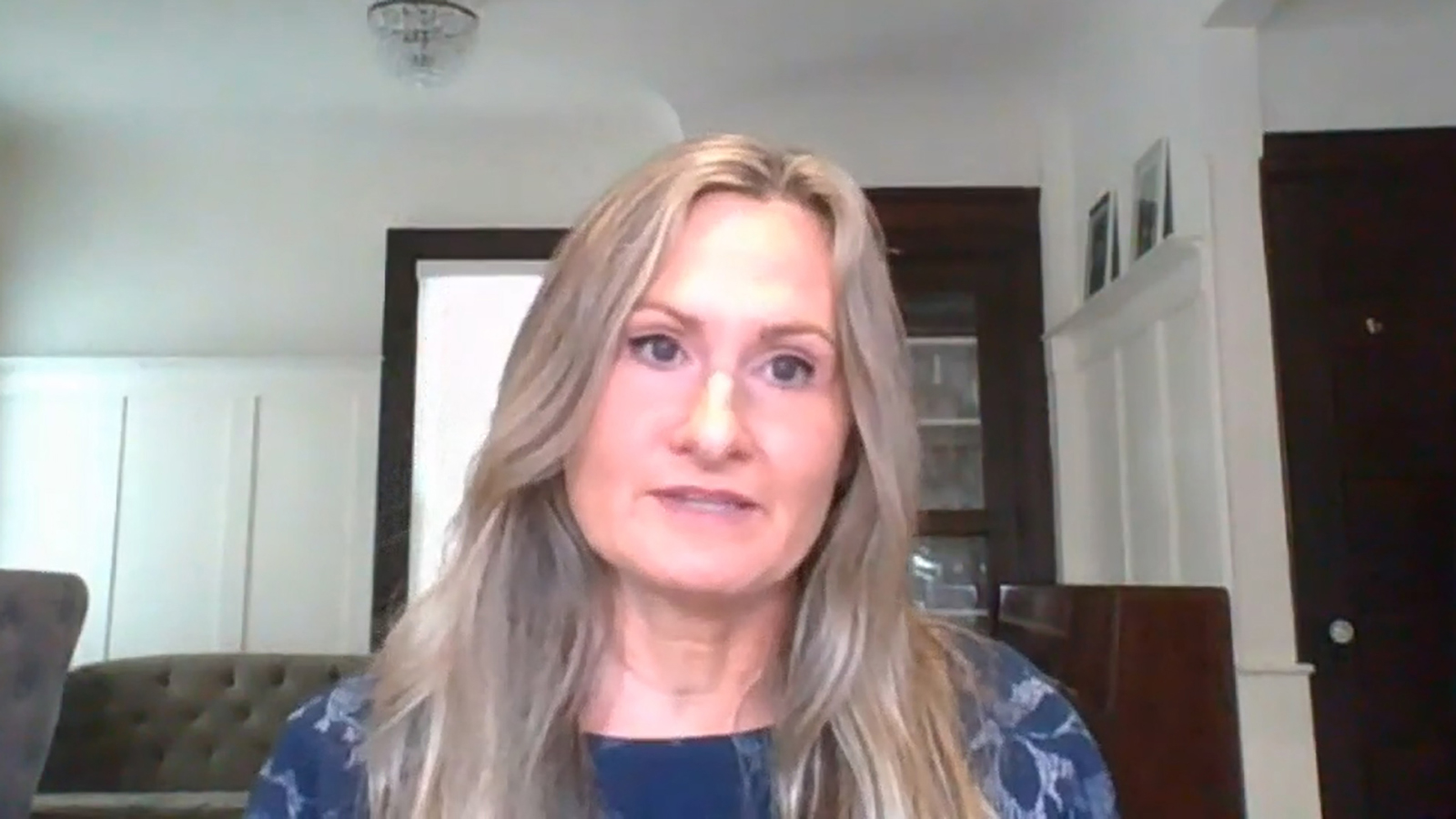
I was delighted to hear from Alex Johnston, CEO of 360 Concussion Care. Alex, who was a wonderful mentor and role model for me in her previous position with Catalyst, spoke about the need for greater support for working parents, together with Frances Donald, Global Chief Economist & Global Head of Macroeconomic Strategy, Multi-Asset Solutions Team, Manulife Investment Management, and the Honourable Katrina Chen, Minister of State for Child Care of British Columbia & Member of the Legislative Assembly of British Columbia. “Covid helped a lot of people see in glaring light just how critical women and childcare are for our society, companies, and governments,” said Donald. “Manulife began expanding benefits for women and parents before Covid. Many women like myself raised our voice, and we didn’t just ask for better, we demanded it.”
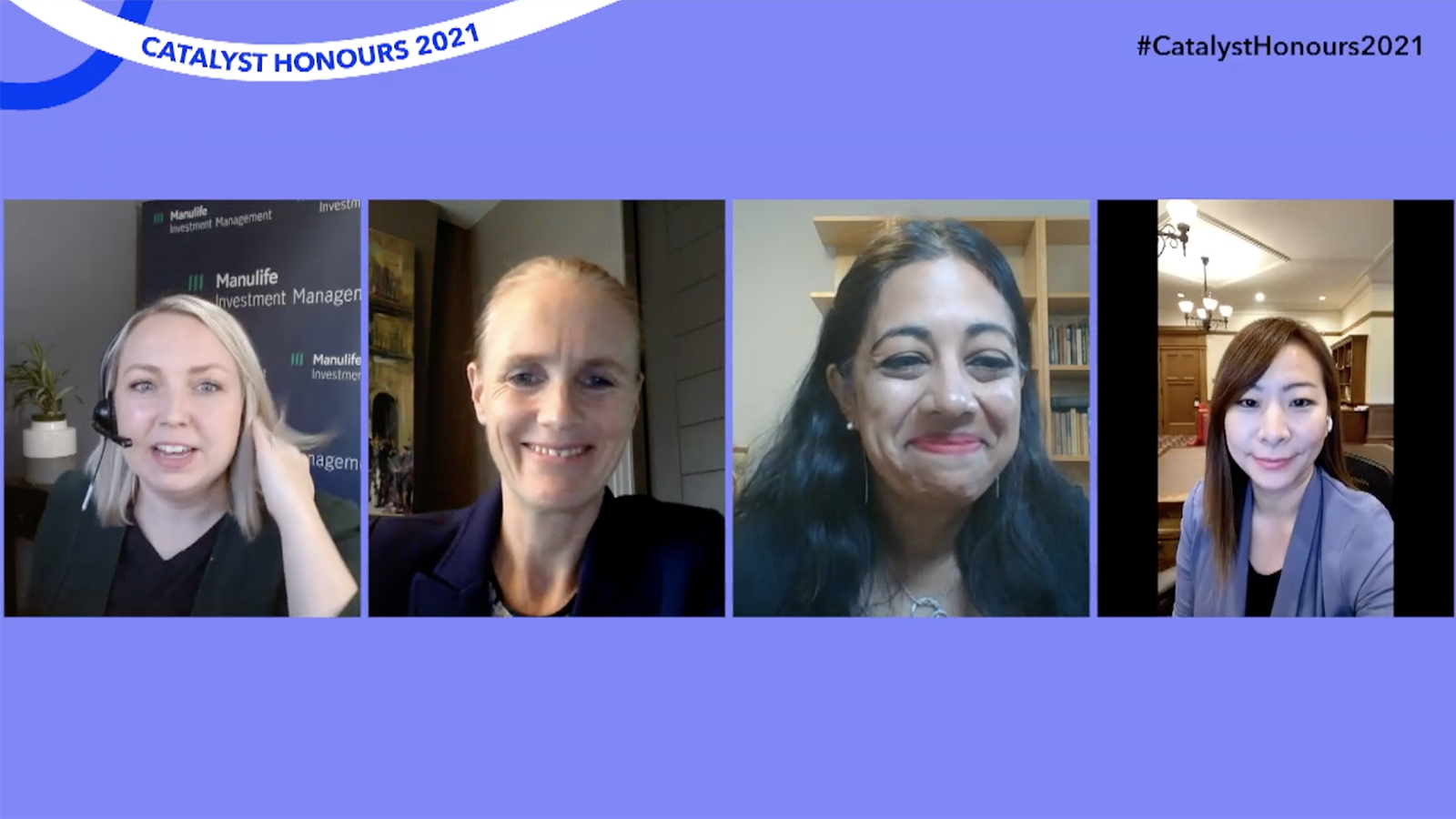
During the pandemic, women of colour have experienced the highest levels of job and income loss. Companies must be more intentional about advancing women from underrepresented racial and ethnic groups. “There is a common ground around being women and understanding the barriers women face, but when we add in race, class, geography, ability, etc.—these kinds of things make barriers [women] face significantly different,” said Zahra Ebrahim, CEO and Co-founder of Monumental, a Toronto-based partnership that she describes as “focused on creating fair and just cities and institutions, in support of an equitable recovery from Covid-19.” Ebrahim spoke in conversation with our Champion Evan Siddall.
Marie-Ange Noué of EMD Serono—the biopharmaceutical business of Merck KGaA, Darmstadt, Germany in the US and Canada—also said that employers must “make sure women of colour are being hired and promoted at similar rates to other employees. If you see gaps, take action and make adjustments.”
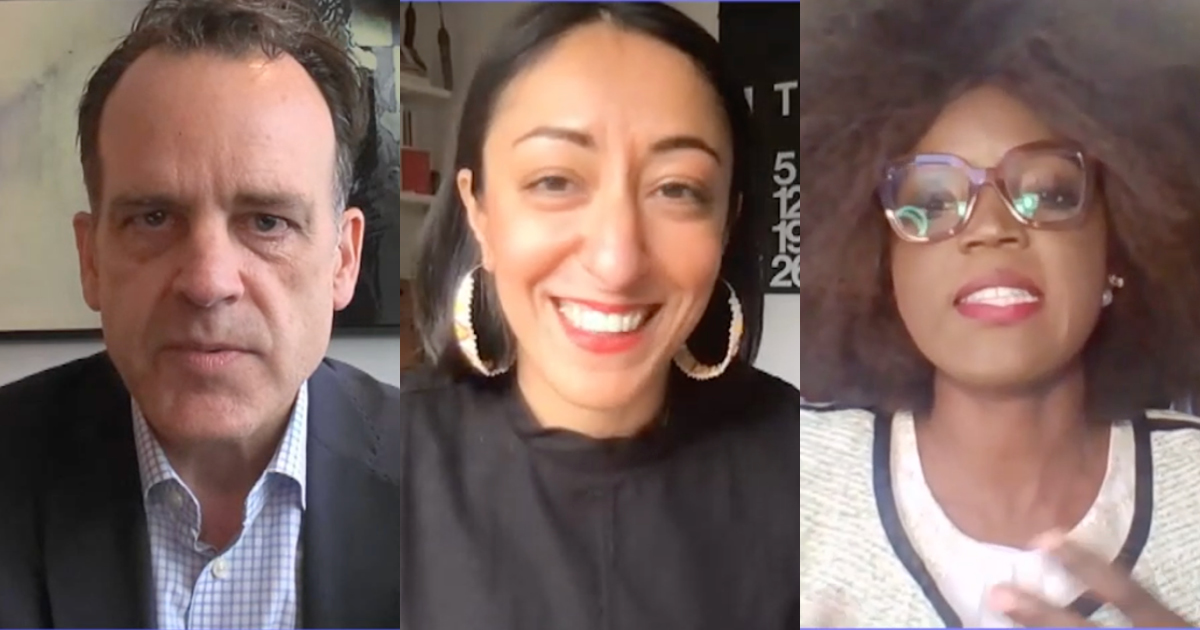
BMO’s Kona Goulet emphasized the importance of having an Indigenous-led strategy to recruit, retain, and advance Indigenous employees. And keynote speaker Sarain Fox, Anishinaabe activist, artist, and filmmaker from Batchawana First Nation, spoke movingly about the toll the pandemic has had on her community, but how she has drawn strength from their resiliency. “During the pandemic, Indigenous people had to make radical choices. Sometimes we had to choose to isolate our community members. It was a very triggering moment for many of us, because this wasn’t our first pandemic,” Fox noted, referring to the history of colonialism and genocide inflicted upon Indigenous communities for generations. Her experience with her community during the pandemic taught her that “we must take care of ourselves, and tend to our own fire first, so that we have the strength to tend to our communal fires and give back.”
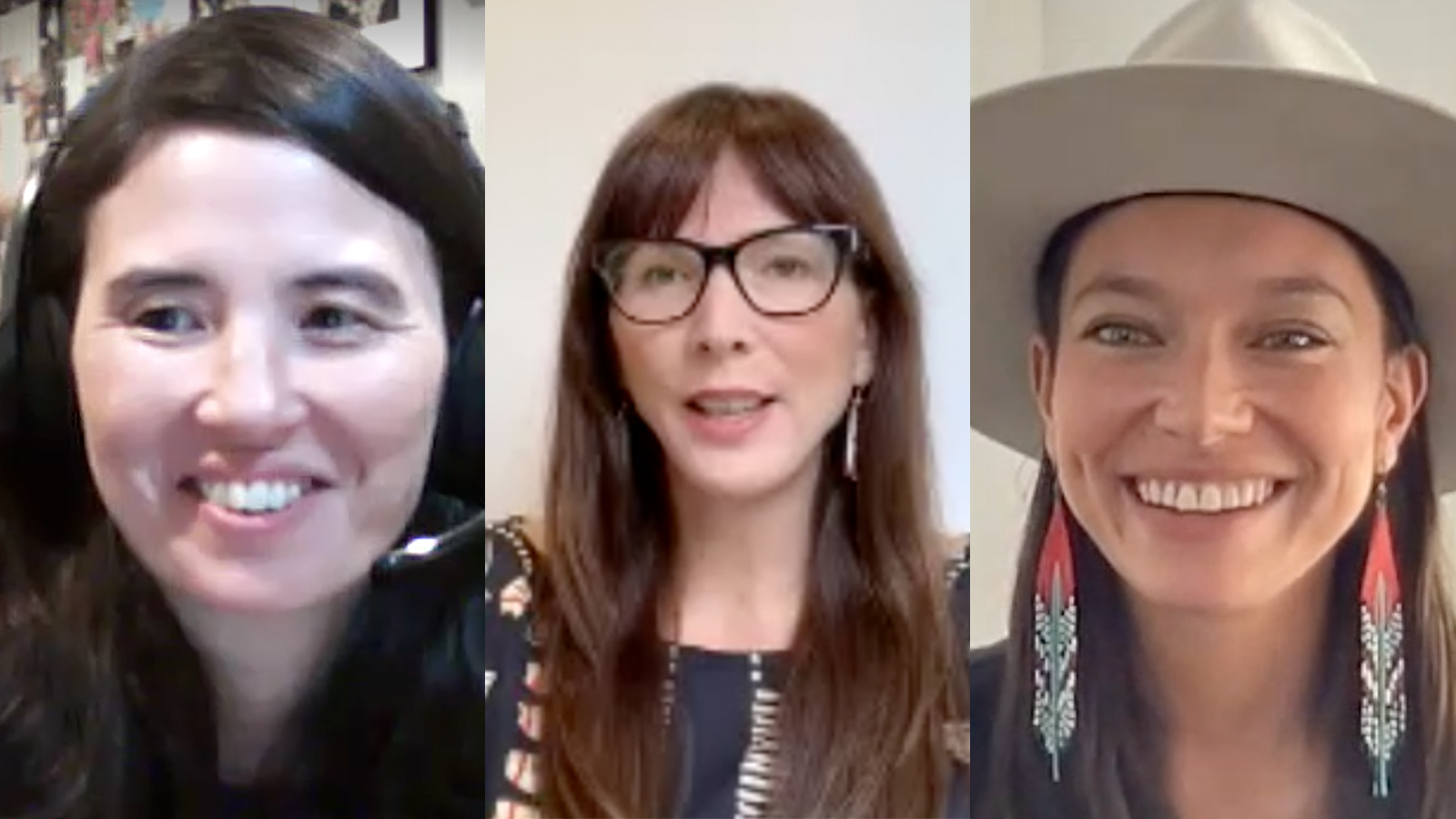
A commitment to culture change must be evident from the top. Manulife President & CEO Roy Gori opened the conference by acknowledging the path to gender equity is not easy, but “we continue to learn and improve as we go because it’s the right thing to do, and it’s worth the effort.”
Darryl White, CEO of BMO, emphasized the need to lead by example: “Leaders have to take this [DEI] personally. For me and everyone else in positions of leadership, we must personally invest.” And Jeffrey Russell, President of Accenture Canada, added that leaders need to be the source of change within their own organizations.
Champion Lorraine Gray shared that a truly equitable environment requires some people to confront their own privilege. “It can be uncomfortable to hear some stories, face truths, and make changes,” Gray said, but we must “accept discomfort and use it to make change.”
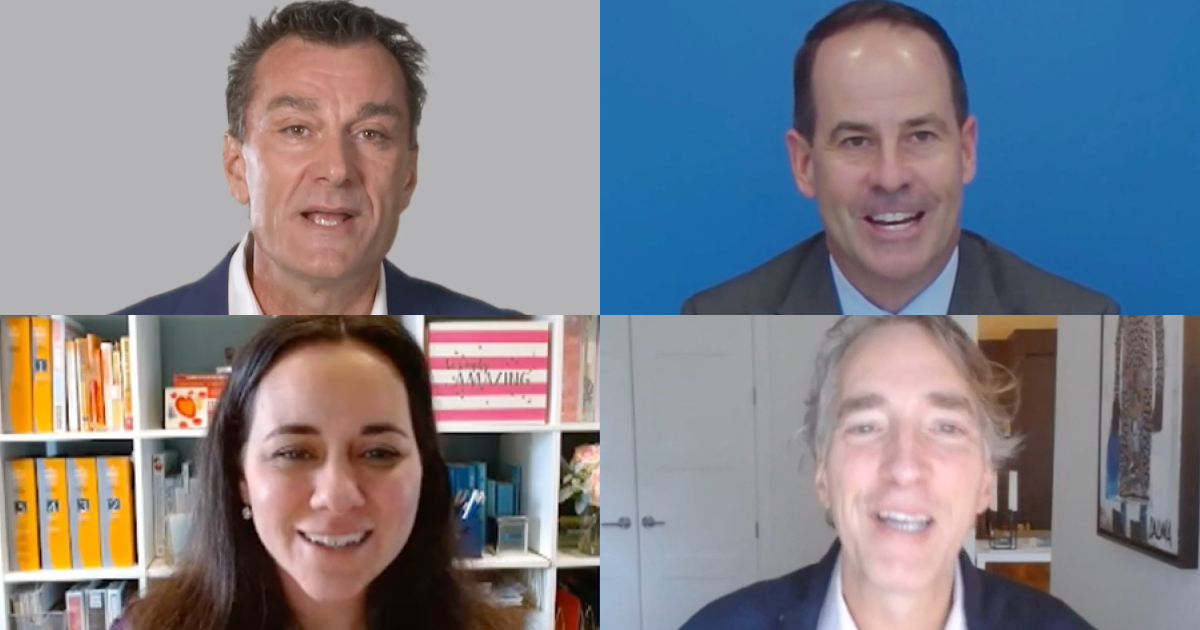
I was delighted to moderate a panel with special guest John Wiggins, VP, Organizational Culture and Inclusion for the Toronto Raptors at Major League Sports and Entertainment (MLSE) and my colleague, Ludo Gabriele, from Catalyst’s Men Advocating Real Change (MARC) initiative. Gender partnership entails people of all genders coming together to discuss equity and inclusion, with mutual accountability, for the purpose of creating culture change.
Wiggins inspired us all by highlighting some of the specific actions MLSE is taking to advance women: “Last year, the Toronto Raptors took a really intentional position with regards to an all-women’s broadcast. It was a historical moment in the NBA and it allowed us to position women in roles that they were ready to take but hadn’t been given that opportunity yet; I’m proud to say that a lot of [these women] now have full-time positions with our Raptors and other broadcasts.”
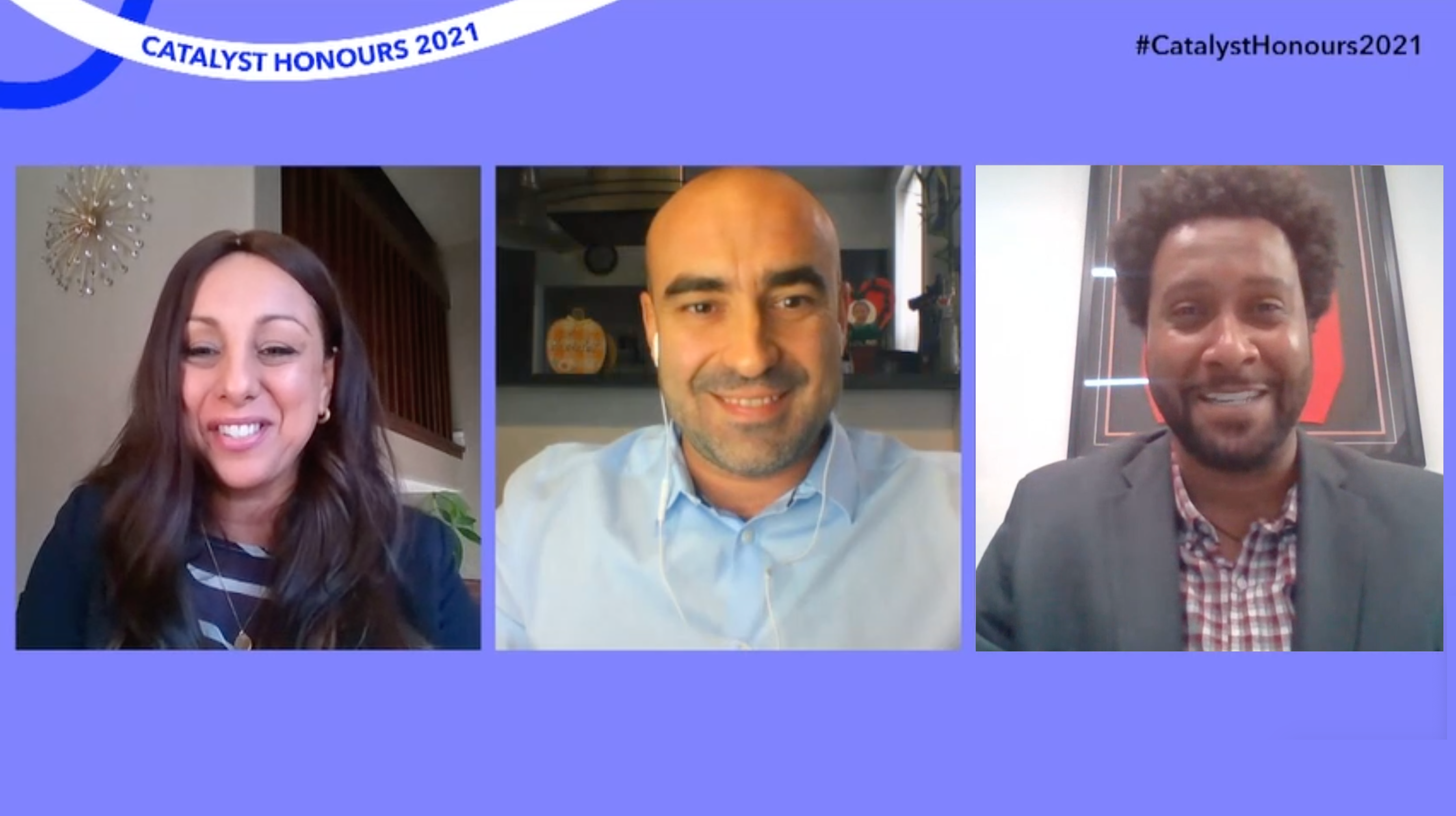
Recent Catalyst research finds that leader empathy can boost employee engagement and innovation and reduce burnout. Founder & CEO of TLC Lions Gian Power shared that empathy and getting to know your employees on a human level is key to building a more inclusive culture. TLC Lions is an organization that partners with companies to support inclusion, mental health, and talent development. “I never forget the leaders who cared for me. One of them, looking back, was showing empathy. She would take the time to walk with me, talk with me. She allowed me to thrive,“ Power said.
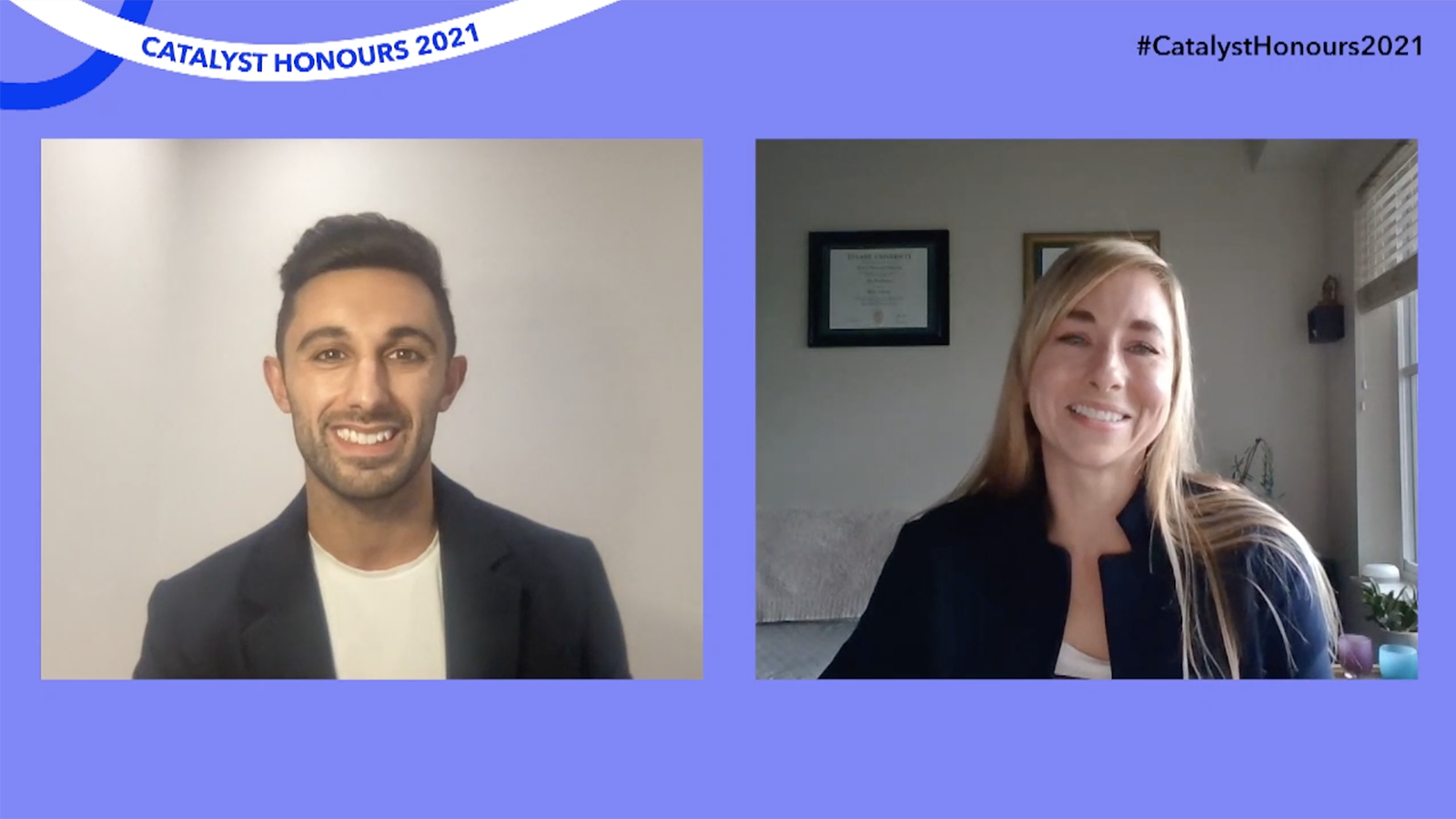
Advancing truly equitable and inclusive workplaces for women is challenging work, and we will not always get it right, but this year’s conference provided real and tangible actions that we can all start taking today.
I am so grateful to the many individuals who made this year’s event possible. Special thanks and gratitude to the entire Catalyst team, our guest emcee Emily Mills, founder of How She Hustles, our Presenting Sponsor, Manulife, our Day Sponsors, BMO and Accenture, and our many generous conference sponsors. It truly takes a village to drive change.
Vandana Juneja is a non-profit leader with a passion for advancing women in the workplace and society. As Vice President & Head, Global Advisory Services for Catalyst, Vandana and her team provided high impact boutique DEI consulting and thought leadership, guiding organizations across the globe to accelerate the advancement of women and underrepresented groups through the pipeline to leadership and the boardroom. Advisory Services engagements included a broad range of qualitative and quantitative diagnostics, DEI strategy planning, and programmatic offerings on topics such as sponsorship, employee resource groups, and inclusive talent management. Vandana joined Catalyst in 2013 in its corporate engagement department and advanced through the organization, gaining experience in various roles and regions. In 2017, she assumed responsibility for leading Catalyst's Asia-Pacific region, driving the amplification of Catalyst's global impact as Vice President, Global Growth Markets. In 2020, she took on the role of Executive Director, Canada where she led Catalyst's Canadian operations. A trusted advisor, she coached and counseled F500 companies across industries with respect to their strategies to advance women into leadership and to create inclusive environments where all individuals can thrive. She worked closely with corporate supporters, professional organizations, CEOs and senior leaders to advance their shared mission. A diversity, equity, and inclusion expert, she has worked with companies around the globe including in Canada, the US, Europe, Asia, Australia and Latin America. She frequently speaks to corporate audiences and has been quoted in media/publications such as The Globe and Mail, BNN Bloomberg, The Toronto Star, CTV News, CityNews, Zoomer Radio, and HR Reporter as an expert on issues related to women’s leadership and DEI. A lawyer by training, Vandana practiced immigration law earlier in her career, following which she worked in the global diversity and inclusion groups of two Canadian banks where she had accountability for gender equity and Employee Resource Groups. Her past experience also includes working as a research associate for the Status of Women Canada as well as travelling to Vietnam with an NGO in partnership with the University of Toronto to evaluate a micro-finance project designed to lift women out of poverty and into the mainstream banking system. Vandana has earned a B.Comm. from McMaster University, an MBA from the University of Windsor, and an LL.B. from the University of Ottawa.